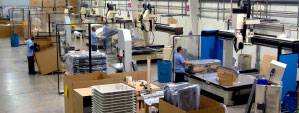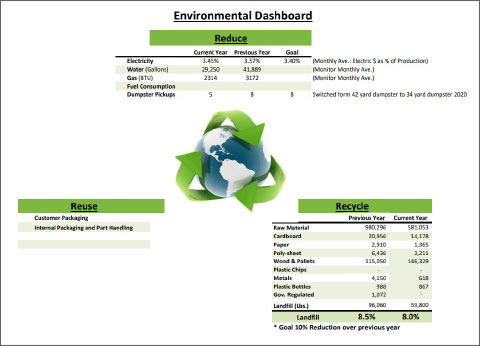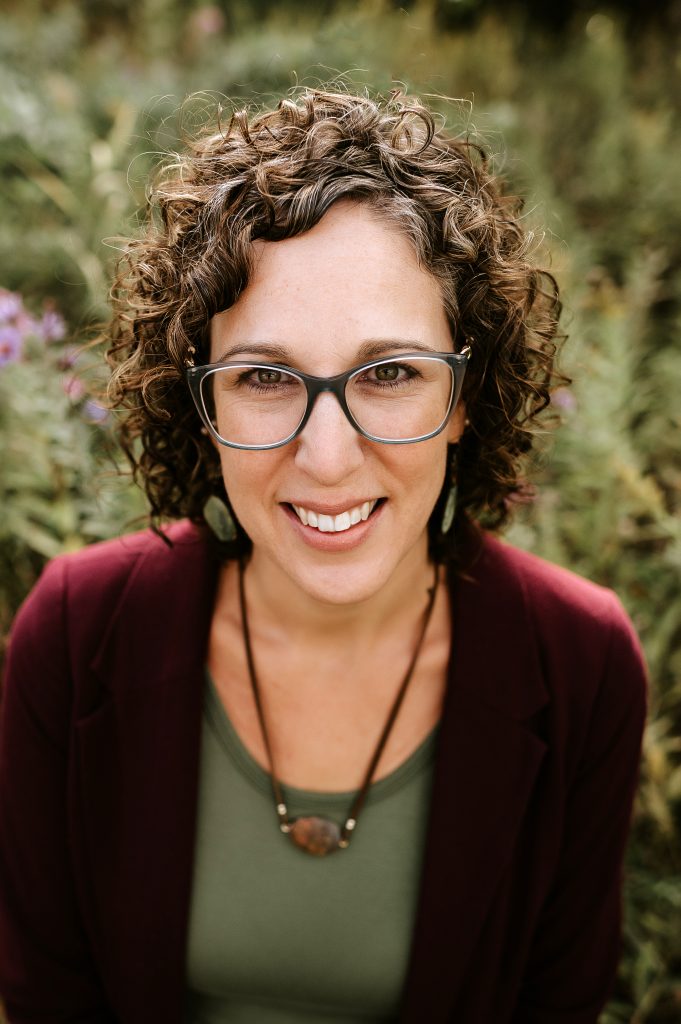COMPANY PROFILE:
Currently celebrating 30 years, General Plastics, Inc. (GP) is an ISO 9001 & 14001 certified, full-service custom plastic thermoformer located in Milwaukee, Wisconsin. They use innovative approaches suited for transportation, office, medical, health & wellness, gaming and arcade, food & beverage, and construction across the United States and Canada. When Bob Porsche purchased the company in 1987, GP only had 6 full-time employees, but now has over 75 full-time employees. They also expanded their facilities over the past 30 years growing from 11,000 square feet to over 93,000 square feet.
SUSTAINABILITY TEAM DEVELOPMENT:
Vice President of Operations Patrick Cain says they view sustainability as a holistic way to operate more efficiently. General Plastics started with building an Environmental Management System, then grew to develop a sustainability team made of their Quality Manager, Manufacturing Engineer, and Plant Manager.
This newly integrated team supports buy-in across upper management and shift supervisors so that sustainability and safety are on the minds of everyone throughout day-to-day operations. The team meets once a month to review progress, data, and goals and twice per year to discuss long term strategy. Their objectives are focused on three of the UN Sustainable Development Goals (SDGs), Goal 8: Decent Work and Economic Growth, Goal 9: Industry, Innovation, and Infrastructure, and Goal 12: Responsible Consumption and Production.

GREEN MASTERS PROGRAM PROVIDES A FOUNDATION TO GPs SUSTAINABILITY EFFORTS:

Because the team didn’t have a comprehensive sustainability program, they used the Green Masters Program as a foundation. The Green Masters Program helped them understand the core areas of sustainability and what best practices and actions they could implement. They also found the action manager brought new knowledge to their employees and influenced their strategic planning process. During their six years in the Green Masters Program, they’ve developed processes and systems for data collection across operations and formed an integrated sustainability team. The team created a dashboard (see image 1) that each member updates monthly. It motivated employees and stakeholders to get involved and became attractive to prospective employees and clients.
RESULTS:

Improvements driven by their Green Masters Program include upgrading all lighting to LED, trimming cells in their rotary forming area, trimming set up reduction projects, purchasing new more energy efficient equipment, and setting up double framing on their rotary machines. Major returns on investment seen from these examples include:
- Upon converting to LED lighting, they saw a savings of 8% of electricity cost per year, saving 199,198kWH of electricity consumption annually, and eliminating 141 metric tons of carbon dioxide emissions.
- They also purchased new energy efficient equipment. One of the new rotaries gives them a 9-year return on investment, reduces idle use, and saves them about $42,000 per year.
(The Green Masters Program is a way to) develop a process to manage long-term change while motivating the workforce that their daily actions do make a difference.
Patrick Cain, VP of Operations
For more information and to start your Green Masters application, head over to https://www.wisconsinsustainability.com/greenmasters.
Download a copy of this case study here.
For additional information please contact Jessy Servi Ortiz: [email protected]


